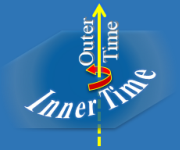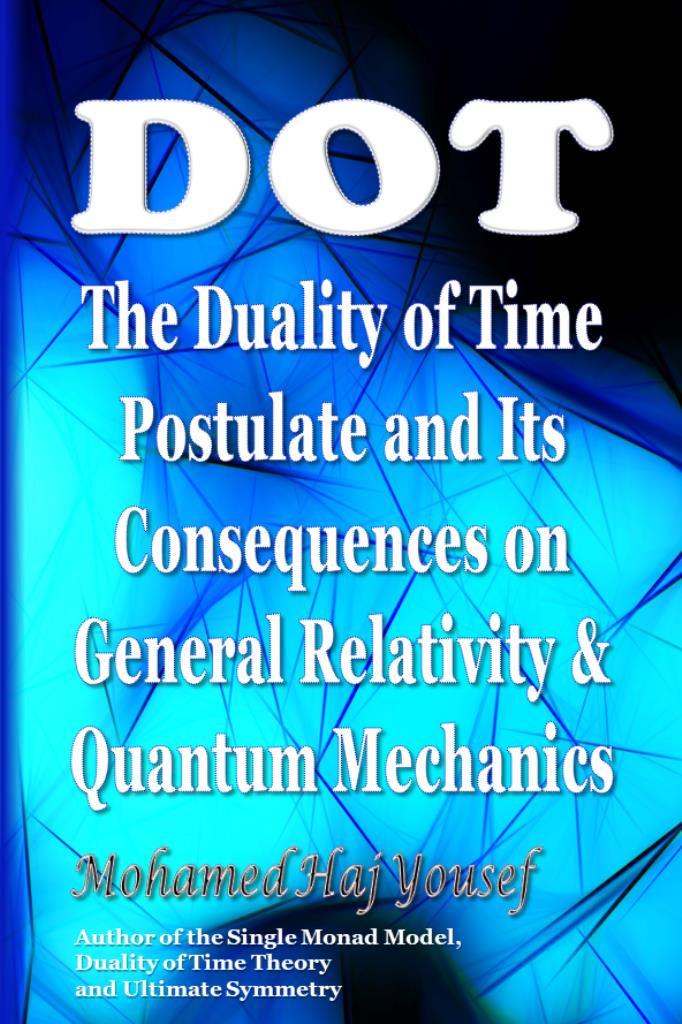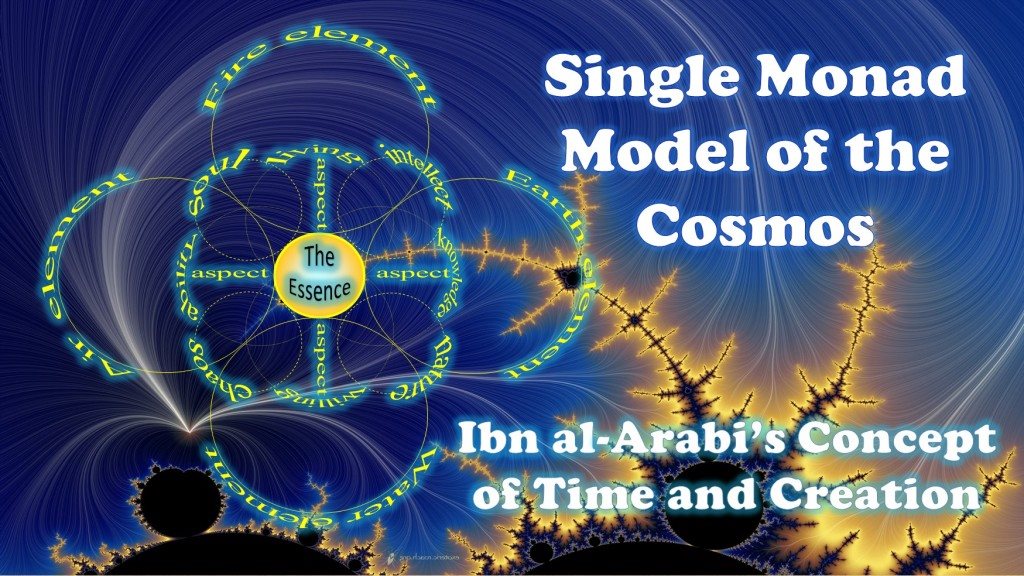6.3. The Equivalence Principle of General Relativity
In moving from Special to General Relativity, Einstein observed the equivalence between the gravitational force and the inertial force experienced by an observer in a non-inertial frame of reference. This is roughly the same as the equivalence between active gravitational and passive inertial masses, which has been later accurately tested in many experiments (Schlamminger et al., 2008; Reasenberg et al., 2012), but there is no direct mathematical derivation to this principle apart from the famous spacecraft accelerator thought experiment which relies on induction.
When Einstein combined this equivalence principle with the two principles of Special Relativity, he was able to predict the curved geometry of space-time, which is directly related to its contents of energy and momentum of matter and radiation, through a system of partial differential equations known as Einstein field equations.
We explained in section 6.2 above that an exact derivation of the mass-energy equivalence relation  is not possible without postulating the inner levels of time, and that is why there is yet no single exact derivation of this celebrated equation. For the same reason indeed, there is also no mathematical derivation of the equivalence principle that relates gravitation with geometry, because it is actually equivalent to the same relation
is not possible without postulating the inner levels of time, and that is why there is yet no single exact derivation of this celebrated equation. For the same reason indeed, there is also no mathematical derivation of the equivalence principle that relates gravitation with geometry, because it is actually equivalent to the same relation  that reflects the fact that space and matter are always being perpetually re-created in the inner time, i.e. fluctuating between the particle state
that reflects the fact that space and matter are always being perpetually re-created in the inner time, i.e. fluctuating between the particle state  and wave state
and wave state  , thus causing space-time deformation and curvature.
, thus causing space-time deformation and curvature.
Due to the discrete structure of the genuinely-complex time-time geometry, as illustrated in Figure 5, the complex momentum  should be invariant between inertial and non-inertial frames alike, because effectively all objects are always at rest in the outer level of time, as we explained in section 5 above. This means that complex momentum is always conserved even when the velocity changes, i.e. as the object accelerates between non-inertial frames!
should be invariant between inertial and non-inertial frames alike, because effectively all objects are always at rest in the outer level of time, as we explained in section 5 above. This means that complex momentum is always conserved even when the velocity changes, i.e. as the object accelerates between non-inertial frames!
This invariance of momentum between non-inertial frames is conceivable, because it means that as the velocity increases (for example), the gain in kinetic momentum  (that is the imaginary part) is compensated by the increase in the effective mass:
(that is the imaginary part) is compensated by the increase in the effective mass:  due to acceleration, which causes the real part
due to acceleration, which causes the real part  also to increase, but since
also to increase, but since  is hyperbolic, thus its modulus
is hyperbolic, thus its modulus  remains invariant, and this what makes the geometry of space (manifested here as
remains invariant, and this what makes the geometry of space (manifested here as  ) dynamic, because it must react to balance the change in effective mass. Therefore, a closed system is closed only when we include all its contents of mass and energy (including kinetic and radiation) as well as the background space itself, which is the vacuum state
) dynamic, because it must react to balance the change in effective mass. Therefore, a closed system is closed only when we include all its contents of mass and energy (including kinetic and radiation) as well as the background space itself, which is the vacuum state  , and the momentum of all these constituents is either
, and the momentum of all these constituents is either  , when they are re-created in the inner levels, or
, when they are re-created in the inner levels, or  for physical objects moving in the normal level of time. For such a conclusive system, the complex momentum
for physical objects moving in the normal level of time. For such a conclusive system, the complex momentum  is absolutely invariant.
is absolutely invariant.
Actually, without this exotic property of momentum it is not possible at all to obtain an exact derivation of  which is equivalent to
which is equivalent to  as we mentioned in section 6.2 above, and also in 9 below. These experimentally verified equations are correct if, and only if, the modulus
as we mentioned in section 6.2 above, and also in 9 below. These experimentally verified equations are correct if, and only if, the modulus  is always conserved. For example when the object accelerates from zero to
is always conserved. For example when the object accelerates from zero to  , and then the effective mass changes from
, and then the effective mass changes from  to
to  , thus we get:
, thus we get:
 (21)
(21)
Since this previous equation 21 is equivalent to:  , therefore, in addition to the previous methods in equations 11 and 12, and the relativistic energy-momentum relation in equation 20, the mass-energy equivalence relation:
, therefore, in addition to the previous methods in equations 11 and 12, and the relativistic energy-momentum relation in equation 20, the mass-energy equivalence relation:  can now be deduced from equation 21 as it is shown in 9 below, because, as we mentioned in section 6.2.4 above, the equations:
can now be deduced from equation 21 as it is shown in 9 below, because, as we mentioned in section 6.2.4 above, the equations:  and
and  are equivalent, and the derivation of one of them leads to the other, while there is no exact derivation of either form in the current formulation of Special or General Relativity.
are equivalent, and the derivation of one of them leads to the other, while there is no exact derivation of either form in the current formulation of Special or General Relativity.
This absolute conservation of complex momentum under acceleration leads directly to the equivalence between active and passive masses, because it means that the total (complex) force:  must have two components; one that is related to acceleration as
must have two components; one that is related to acceleration as  changes in the outer time
changes in the outer time  , which is the imaginary part, and this causes the acceleration:
, which is the imaginary part, and this causes the acceleration:  , so
, so  here is the passive mass, while the other force is related to the change in effective mass
here is the passive mass, while the other force is related to the change in effective mass  , or its equivalent energy
, or its equivalent energy  , which is manifested as the deformation of space which is being re-created in the inner levels of time
, which is manifested as the deformation of space which is being re-created in the inner levels of time  , and this change or deformation is causing the gravitational force
, and this change or deformation is causing the gravitational force  that is associated with the active mass; and these two components must be equivalent so that the total resulting complex momentum remains conserved. Therefore, gravitation is a reaction against the disturbance of space from the ground state of bosonic vacuum
that is associated with the active mass; and these two components must be equivalent so that the total resulting complex momentum remains conserved. Therefore, gravitation is a reaction against the disturbance of space from the ground state of bosonic vacuum  to the state of fermionic particles
to the state of fermionic particles  , the first is associated with the active mass in the real momentum
, the first is associated with the active mass in the real momentum  , and the second is associated with the passive mass in the imaginary momentum
, and the second is associated with the passive mass in the imaginary momentum  .
.
However, as discussed further in section 7, because of the fractal dimensions of the new complex-time discrete geometry, performing the differentiation of this complex function  requires non-standard analysis because space-time is no longer everywhere differentiable (Notale and Schneider, 1984). So this will not be pursued in this article.
requires non-standard analysis because space-time is no longer everywhere differentiable (Notale and Schneider, 1984). So this will not be pursued in this article.
From this conservation of complex momentum we should be able to find the law of gravitation and the stress-energy-momentum tensor which leads to the field equations of General Relativity. Moreover, since empty space is now described as the dynamic aether, gravitational waves become the longitudinal vibrations in this ideal medium, and the graviton will be simply the moment of time  , just as photons are the quanta of electromagnetic radiations and they are transverse waves in this vacuum, or the moments of space
, just as photons are the quanta of electromagnetic radiations and they are transverse waves in this vacuum, or the moments of space  . This means that equivalence principle is essentially between photons and gravitons, or between space and time, while electrons and some other particles could be described as standing waves in the space-time; with complex momentum
. This means that equivalence principle is essentially between photons and gravitons, or between space and time, while electrons and some other particles could be described as standing waves in the space-time; with complex momentum  , and the reason why we have three generations of fermions is due to the three dimensions of space. This important conclusion requires further investigation, but we should also notice here that the equivalence principle should apply equally to all fundamental forces and not only to gravity, because it is a property of space-time geometry in all dimensions, and not only the
, and the reason why we have three generations of fermions is due to the three dimensions of space. This important conclusion requires further investigation, but we should also notice here that the equivalence principle should apply equally to all fundamental forces and not only to gravity, because it is a property of space-time geometry in all dimensions, and not only the  where gravity is exhibited, as it is also outlined in another publication (Haj Yousef, 2017).
where gravity is exhibited, as it is also outlined in another publication (Haj Yousef, 2017).

















